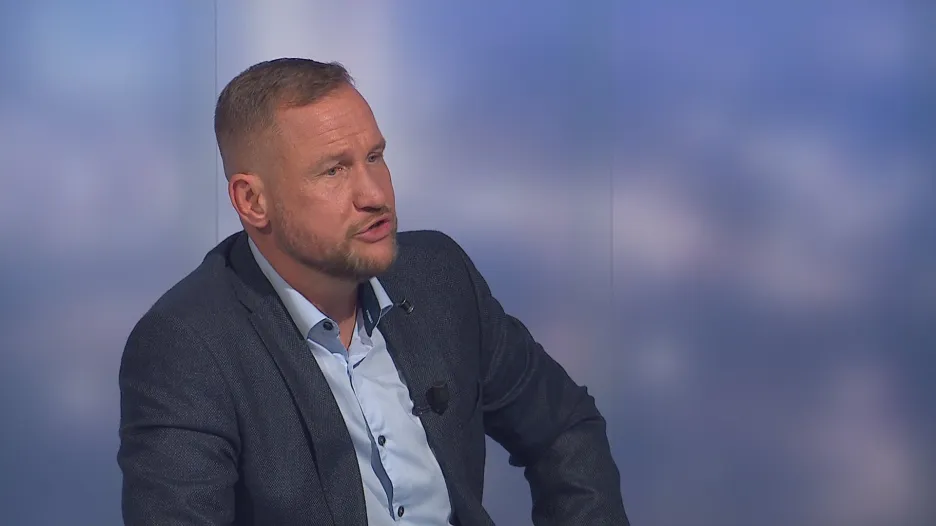Will you be able or will you have to?
You will have to, because there will likely be no other way to watch TV content after the end of terrestrial broadcasting. However, this is the orientation of a dominantly young audience today. But even older generations are finding their way to this viewing. I think that the covid pandemic and the advent of international VOD platforms (VOD stands for Video on demand, editor’s note) in the Czech Republic have caused that even older generations than teenagers have adapted very well to search si content.
Won’t that turn off some of the viewers?
I think we will have to follow the agenda that Europe is discussing in unison at the moment. I don’t think that CT would proceed alone, because this is quite a drastic step, and it will mean a lot of changes in the audiovisual world.
I recorded a comment on Czech Radio Radiožurnál in the early evening today, where it was stated that while Petr Dvořák offered a strong development of CT, you are more moderate. After all, you said it yourself at the CT Council meeting: “Czech Television does not need extensive development.” Will CT not fall behind under your leadership?
If I were to compare it with what Petr Dvořák offered today, who offered a fifty percent increase in production in the regions, who offered a double increase in creativity for children. I would see the main limits in the fact that today we do not know at all how television will be financed, not only next year, but in many years to come.
So it would be nice if we could proceed in this way. I would be reluctant to make such promises at this time because we have no idea what the resources will be available. The second aspect of why I say that CT probably does not need extensive development today is that I am not at all convinced that any CEO of CT is visionary enough to be able to say what Czech society actually expects from the media in the coming period public services, i.e. from television and radio.
Shouldn’t he be such a visionary? If you don’t sit in your office and wait for what the company wants? If you have nothing to offer the company?
Of course, we will offer the company. But then there are some key moments that, in a way, determine the activity of television long in advance. Production of television content is not an overnight production. The production of a feature work takes place two, three and sometimes more years in advance, including the development.
In the same way, the purchase of sports rights takes place many years in advance. Today, at the CT Council meeting, it was announced that we have pre-purchased some rights until 2028, even 2032. That is why I say that the visionary work and the offer there somehow take place long in advance. So I’m not going to sit and wait in my office.
If you didn’t tell yourself that when you come for an increase in the concessionaire fee, the politicians will tell you: “But you said that you don’t need the money.”
But I did not say that CT does not need money.
That’s how it sounded from you, or at least in some comments. Are you ready to do it with the same money?
I said that I can imagine managing the television even with unchanged finances. However, that model would mean, and we all know where it would go, a significant reduction of the content that CT is able to offer.
But if you’ll allow me, I’ll just add one sentence about the financing, about the debate with the parliament or the Ministry of Culture about the preparation of an amendment to the law on television fees. I am convinced that at the same time, ideally sooner, but it is too late for that, there is a need to have a debate about what television should look like in its basic aspects and what are the dominant public services. I also told the councilors today what platform I envision the debate on.
How much do you say? How much should concession fees increase?
I didn’t hide that either. I consider it optimal for the Czech Republic to follow the path that has already been established in Germany. This means a model in which the payer of the television fee is the point of consumption of electricity.
For how many crowns?
This needs to be put into some context. Let’s say that today in Europe, the optimal amount of television or media fee is considered to be roughly 0.6 percent of the average wage. That would be 248 crowns in the Czech Republic. However, I think it is obvious to everyone in the industry that this is an impassable option.
I believe that if we had a political debate with the deputies about a fee somewhere around 180 crowns and a change in the definition of a taxpayer, that this would ensure stable financing of CT for many years to come.
We’ll see what the deputies say to you. One last thing, Mr. Director. Unified digital news platform of Czech Television, Czech Radio (ČRo) and Czech Press Office (ČTK). What is it?
That’s a novelty I’d like to try. If colleagues from the management of CRo and ČTK will hear about it.
Will this mean sharing newsletters?
No, it will only mean a uniform editorial policy and probably the establishment of a common workplace that will collect editorial outputs in electronic form.
One editor who will manage what ČT24, Radiožurnál and ČTK report on?
I am convinced that the digital environment bridges the handicap that until now prevented the synergy of these types of media. This means that the digital platform, today’s most common model where people look for up-to-date information on what just happened, is the mobile phone app.
Merging the current outputs of ČTK television, radio or written news, or photo news, into a public platform seems to me to be a pretty good idea. Precisely because, in this environment, users today are already used to the fact that current information first comes as a flash, i.e. a short text message. Once available, it will probably be a radio supplement with some sound, a synchro created on the spot, and later visual material.
Would you like to have a quick visual material there?
I would like to have fast visual material there, but it may happen that colleagues from CRo will be faster.
Why do you need to connect it?
Because I think that combining the forces of the public media, so that independent, objective and, if possible, widely spread news appeals to as many people as possible, that this is the goal of why we have the public media here. So to become the number one market in that we join forces.
You already mentioned the sport, the councilors also asked about it today, Martin Doktor asked logically. Which major sports broadcasts will ČT not do?
I don’t know because I don’t know how much money we will have for it. We have to wait for the outcome of the debate on further financing of CT. We have bought the rights, we have signed contracts. Whether we will be able to pay for it in the years to come really depends on how the funding is reformed. We know that today the value of the television fee is already below fifty percent of the original value from 2008. If inflation does not radically slow down, then in 2025 we may be below thirty percent, and that is a really small amount.
So will you start cutting sports broadcasts there?
I would like to have a discussion about it. It is definitely not about the ČT Sport channel disappearing, but we will have to look for places where commercial operators will be able to take over our service.
And will people pay for it outside CT?
Of course, if CT doesn’t have the money for it. Let’s tell the viewers straight out that CT buys the rights on the free market, and that there are a number of competitors who are already able to overpay us today. For a number of years, viewers have been blaming us for not watching Premier League football on ČT, but Czech Television does not have Premier League football today. We have now shared the rights to the Qatar World Cup.
Let’s pour ourselves some clean wine, without a financing reform, such a comfortable coverage of top sports events will probably be problematic in the future on television.








